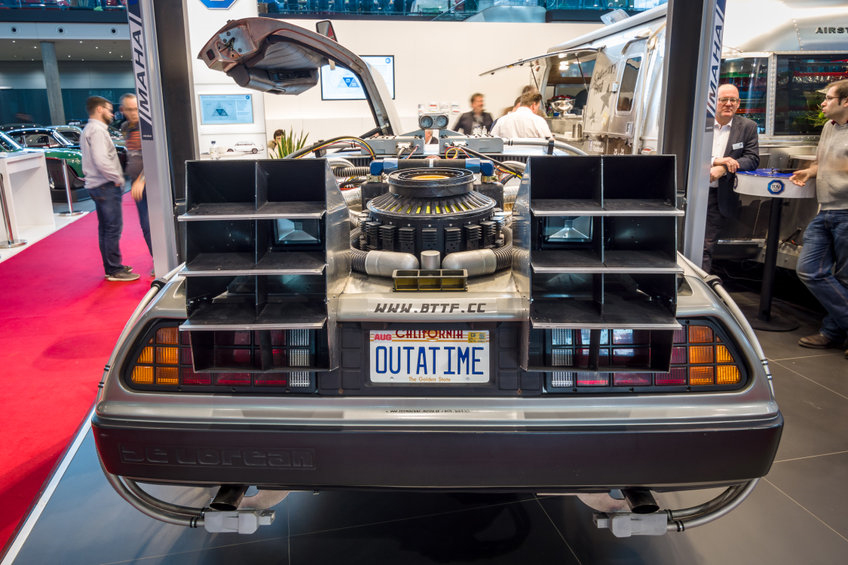At the end of my previous article (Five More Things), I hinted that I might have a Part 2 in mind. Here it is, but instead of “Five More Things” it’s a list of subjects about which I’d like to hop in a time machine and re-do. Of course, this isn’t possible… But what if it was?
To be realistic, though, I’m hoping that perhaps some readers here with less experience can gain some insights and not have these same regrets in their futures. (One can hope!)
One. When I first started in the live sound business, I had a decent amount studio knowledge behind me along with a solid education in audio theory, the basics of electricity, and a good number of hours working with microphones, mixers, outboard gear, and musicians. What I didn’t have was much experience in live sound, which really is a different animal.
Being green at the time, I probably spent too much time and effort trying to employ studio methods to sound reinforcement when I might have been better served looking for ways to learn more about the specifics of live work. Not just mixing and loudspeaker coverage, but the overall logistics, power distribution, maybe a bit of rigging, transport, truck packs, etc.
To do that, I could have asked around about who the local mentors might be, done pro bono work at local shops, and generally been open to getting more work experience. I should have kept an open mind about the key knowledge that the best live sound people have on tap.
Two. It may sound strange if you know what I do now, but I really wished I’d learn more about wireless systems and RF early on. It wasn’t until I started at Lectrosonics that I really started to get my head around concepts like RF gain, frequency coordination, intermodulation, band planning, and other very important topics.
Sure, I’d used a couple of Vega wireless microphone systems “back in the day” when I was touring, but I never really understood how they worked (or in many cases didn’t). It held me back a few times to not have that knowledge. These days especially, it’s a must if you’re working with wireless systems and musicians/entertainers for any live events.
Three. I’ve come to find that I really enjoy teaching and also have a much deeper appreciation of the importance of good teachers. As a result, I’d take more classes in education specifically. I admire teachers and respect the time and effort they put into what can often be a thankless job.
When I was in school and then coming up in the industry, though, I didn’t have that perspective. It would have been easy enough to add some education classes along the way and maybe even do some student teaching, but I focused on other things.
Sure, perhaps it can be argued that I get plenty of opportunities to teach now, with seminars, panels, instructional videos, and the like. But I’d still want to do a better job in this area, given the chance.
Four. Computer Aided Drafting (CAD) was already in full swing by the mid-1990s. I had learned paper-and-pencil drafting in high school (my dad was an architect after all…) but didn’t make the transition to the computer version until much later.
In fact, when I was getting out of the Air Force in 1996 and thinking about where my career would take me next, I talked to Will Parry at Maryland Sound about possibly working there. This is what he wanted to know: “How are your CAD skills?” I didn’t have any. So, if I could do it all over again, I would have taken some training in CAD and then kept up my skills along the way.
Five. Although I grew up playing classical music and earned a music performance degree, I also played in a rock band in college. And I recorded a fair amount of rock music during my days in studios, prior to entering the live sound world.
That said, most of my time doing sound reinforcement work was centered around acoustic music, either classical, contemporary “art” music, or jazz. If I had another shot at it, I would seek out work in a wider variety of musical styles to hone my mixing chops in all those styles. I think it might have given me a better set of tools to go wherever the work was rather than being limited to a narrower range of work.
There’s nothing wrong with specializing in a certain area, of course! But I do think versatility is always a good thing to have in one’s background and skill set.
Six. “Putting in the work” came later to me in life than I would have liked. To quote my dad: “I think you’re allergic to work.” While it wasn’t 100 percent true, I did focus on the things that were interesting to me while often ignoring those that weren’t.
As an example, when math was a completely abstract concept, I had trouble getting motivated to work the problems and my grades suffered as a result. But when math was applied to filter circuits or dB calculations, suddenly it became interesting and I couldn’t get enough of it.
The truth is that we all must, at some point or another, spend time and effort doing things and learning concepts that are difficult and time consuming seemingly without much benefit. However, the payoff is usually worth it, even if that’s not evident it at the time.
So, if I had to choose to tell my past self one particular thing, it would be, “Put in the work now so you don’t have to do suffer later when you aren’t prepared.” Take it from me, learning difficult things later in life is a greater challenge. The older you get, the longer it takes.















